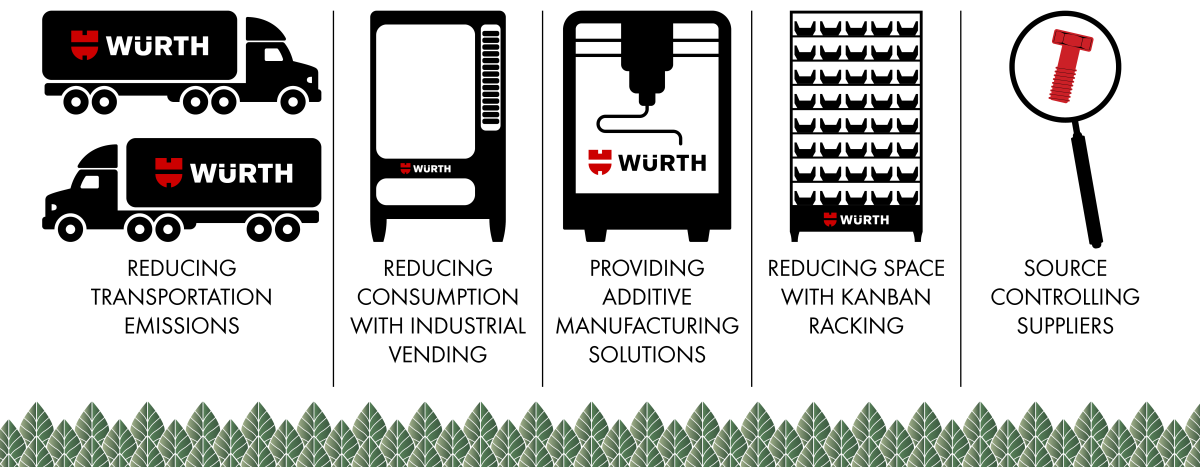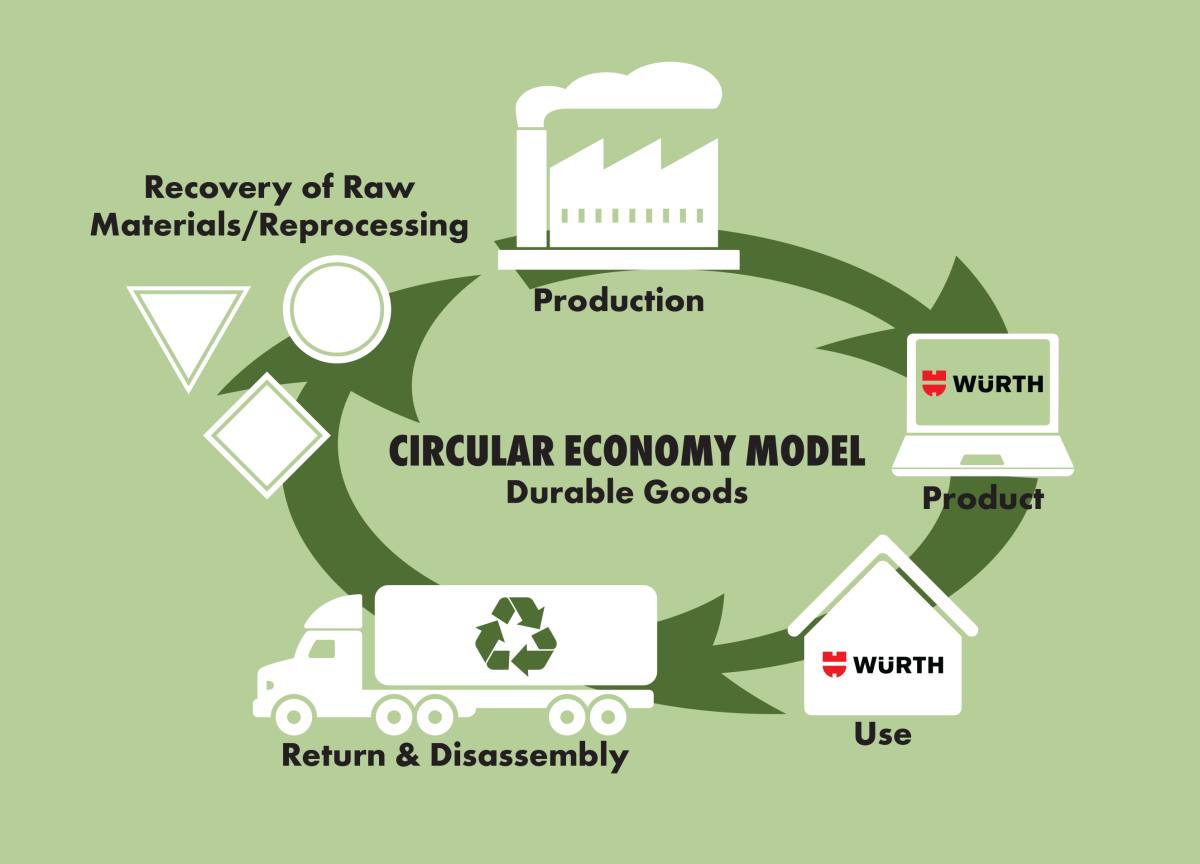Würth Industry North America’s Commitment to Sustainability
Watch our feature on Earth with John Holden.
Both here at Würth Industry USA and across the Würth Group’s global presence, we are committed to protecting our planet and making ourselves and our customers more sustainable.
Sustainability is truly built into our business—we develop comprehensive inventory management solutions that maximize our customers’ efficiency of purchasing, production, and material flow, which in turn reduces their environmental footprint.

- We reduce the emissions produced by product transportation by consolidating suppliers, and by using our data-driven approach to inventory management to order exactly the amount of product our customers need, at exactly the right time.
- Our vending solutions for MRO and safety supplies reduce product consumption by up to 35%—which means that 35% less product needs to be created and packaged.
- Our industrial 3D printing and digital inventory solutions further reduce transportation needs and energy use by bringing manufacturing into customers’ facilities, eliminating the need to transport prototypes and even fully-functional parts from across the globe.
Click here to learn more about our additive manufacturing solutions’ positive impact on the environment.
- Our Kanban racking systems maximize our customers’ facilities by saving up to 40% of shelf space, requiring less energy to manage more parts.
- Our global network of Supplier Quality Engineers ensures that the parts we supply are source controlled to only qualified manufacturers that meet our rigorous standards and all applicable legal requirements for quality and responsibility.
In addition to making our customers more sustainable, we also engage in internal environmental initiatives at our facilities to reduce our pressure on the environment. Using low-emission lighting, migrating from liquefied petroleum to electric forklifts in our warehouses, and recycling our cardboard and IT equipment are just a few of the ways that we work to protect the environment each day.
The Circular Way
As a member of the Würth Group, we are committed to executing on their three pillar goals for sustainability for the organization: carbon neutrality, creation of a circular economy, and social responsibility.
Click here to learn more about sustainability at the Würth Group and read our most recent Sustainability Report.

Würth Sustainability Expert Panel
Watch our webinar recording featuring a panel of sustainability advocates and experts from Würth Group, Würth Industry North America, and Würth Additive Group to learn about how Würth is making ourselves and our customers more sustainable!
Download our brochure to learn more about our commitment to sustainability:
Download Our Sustainability Brochure